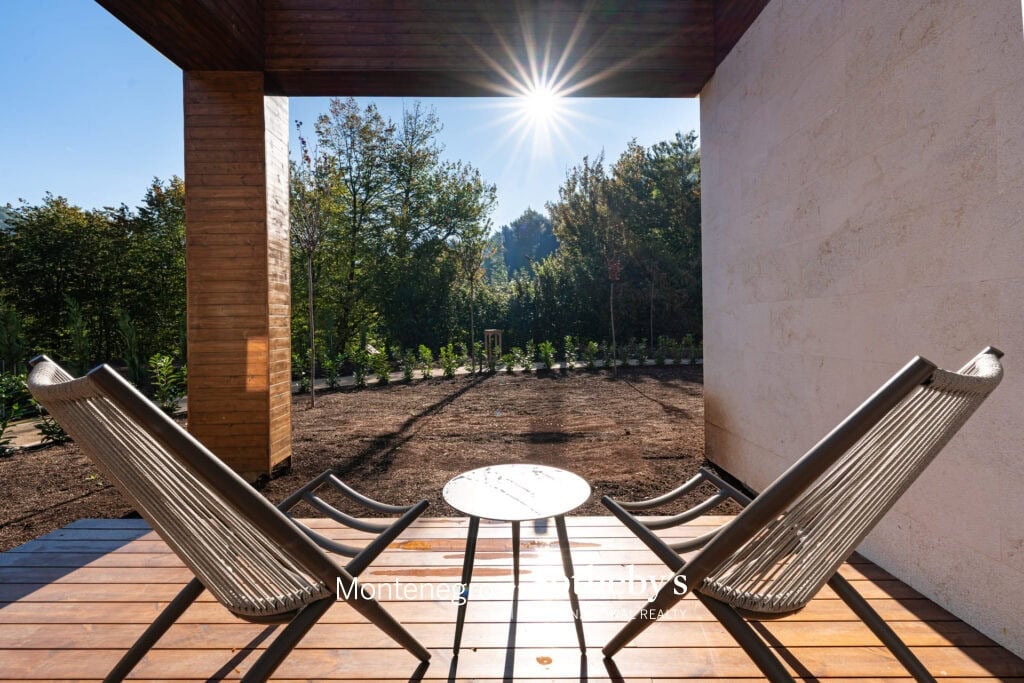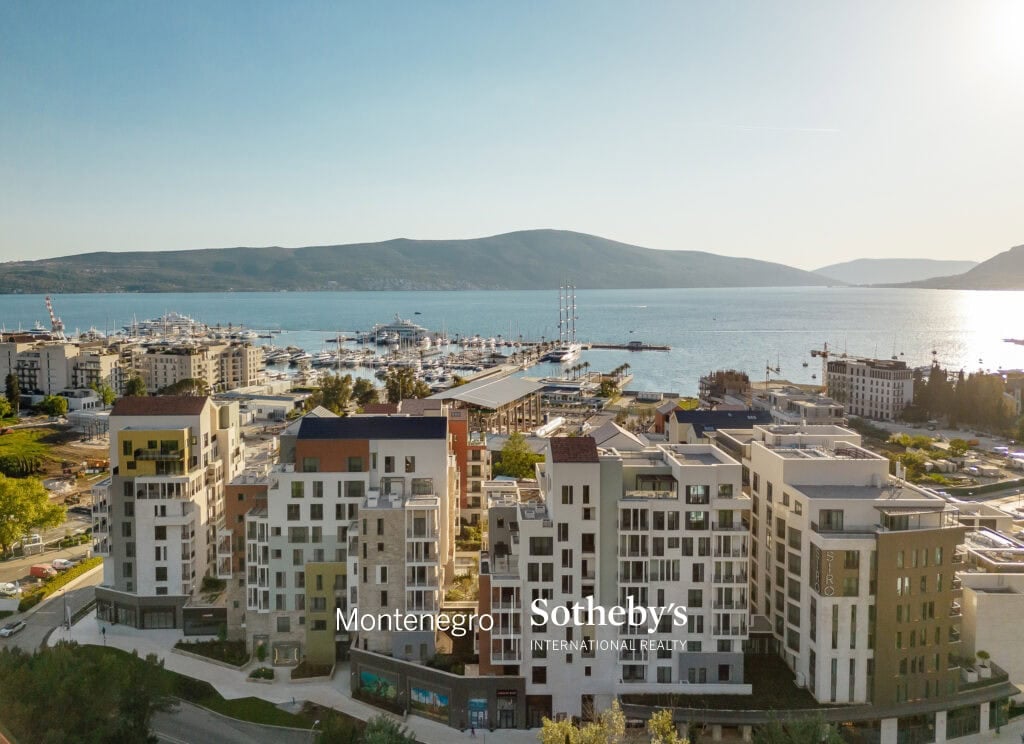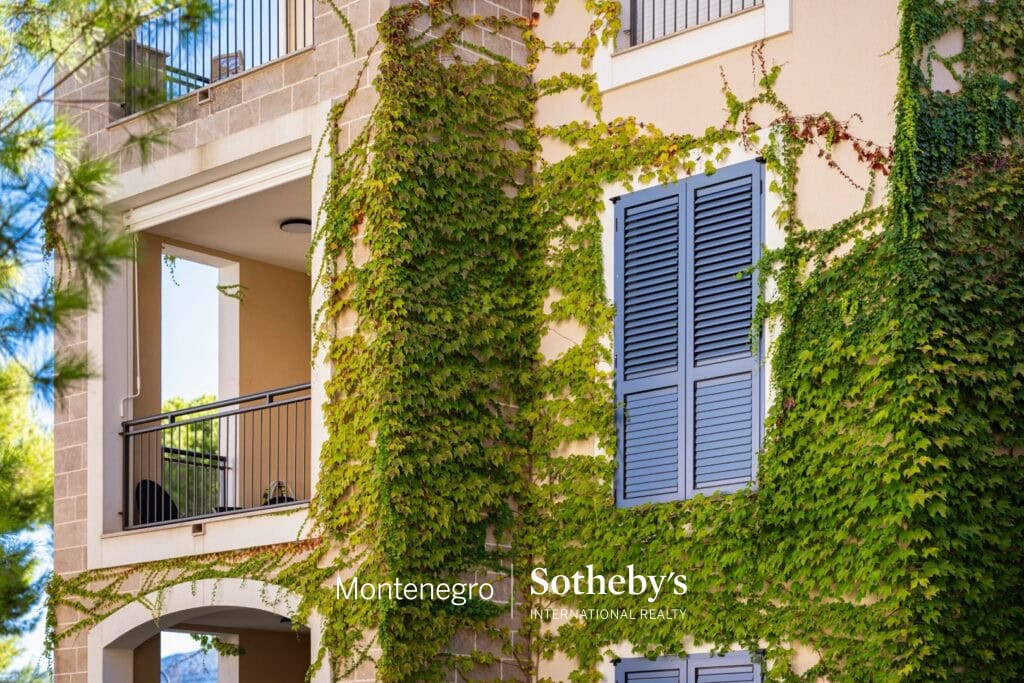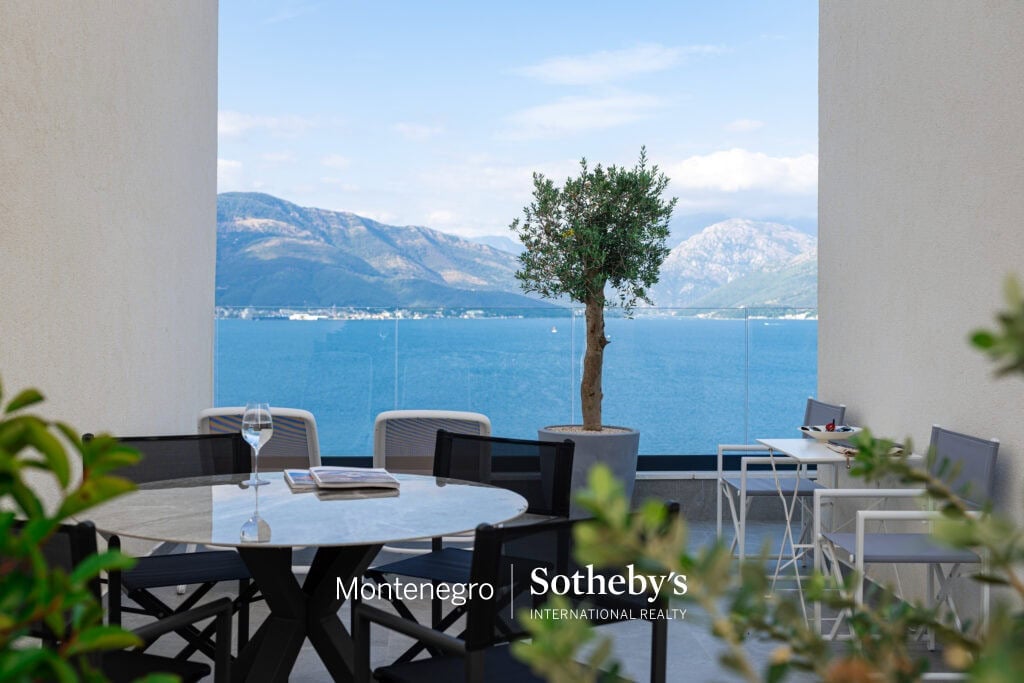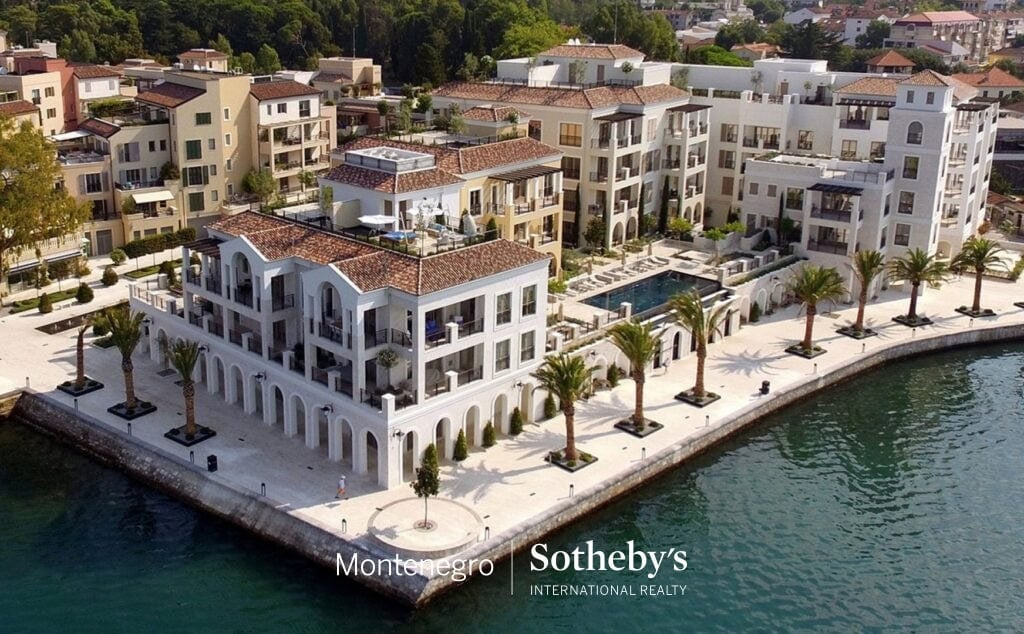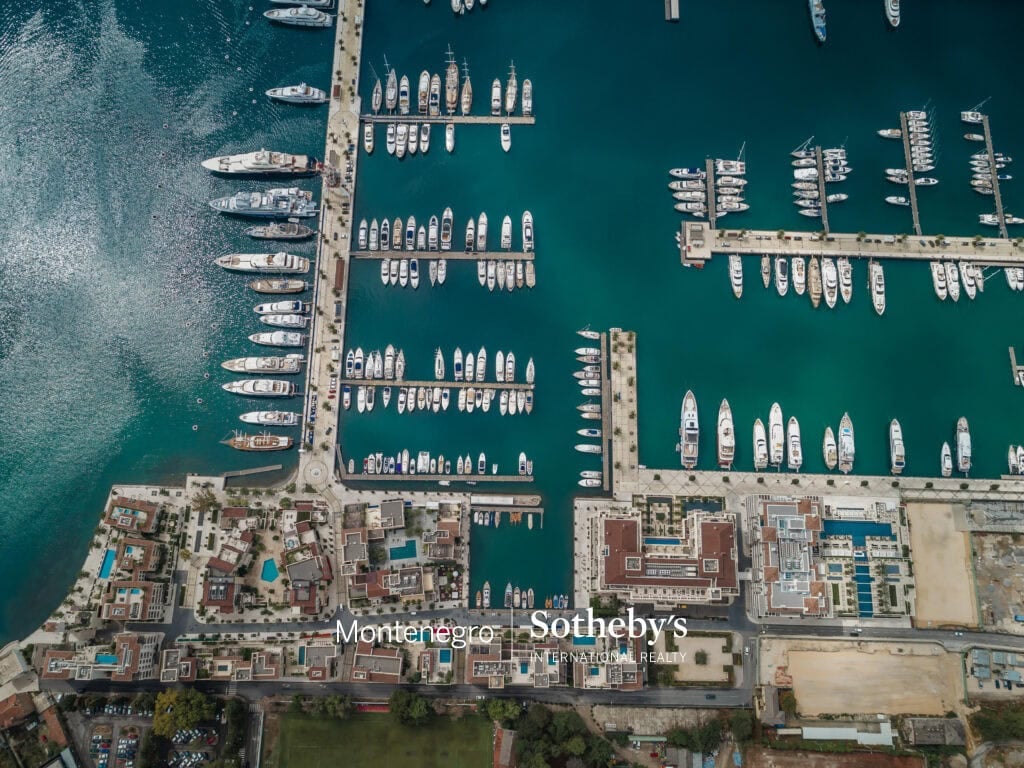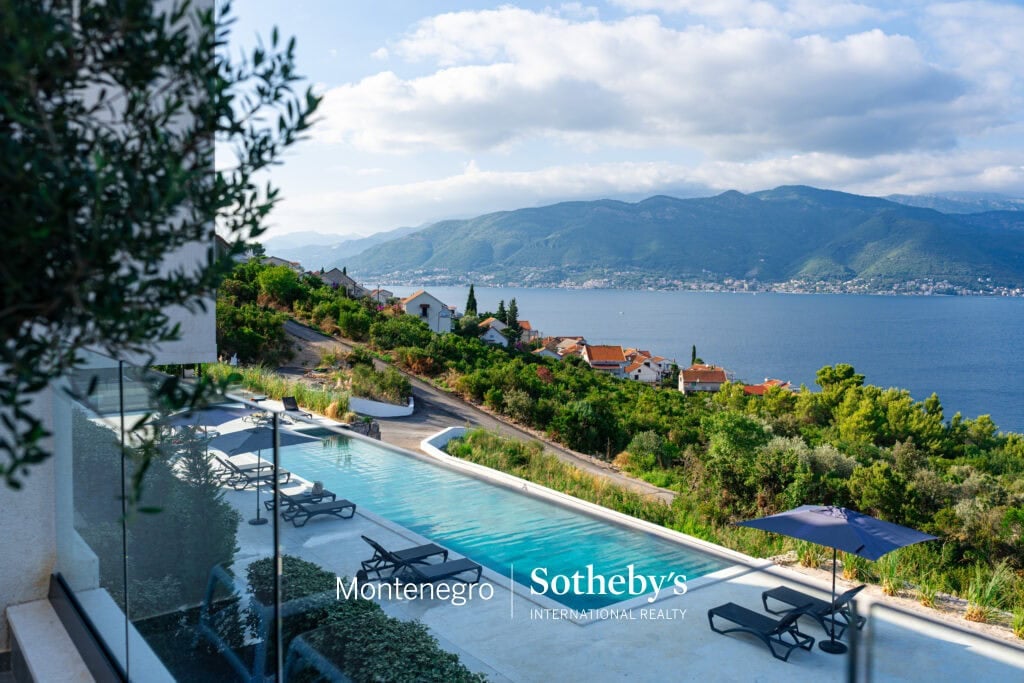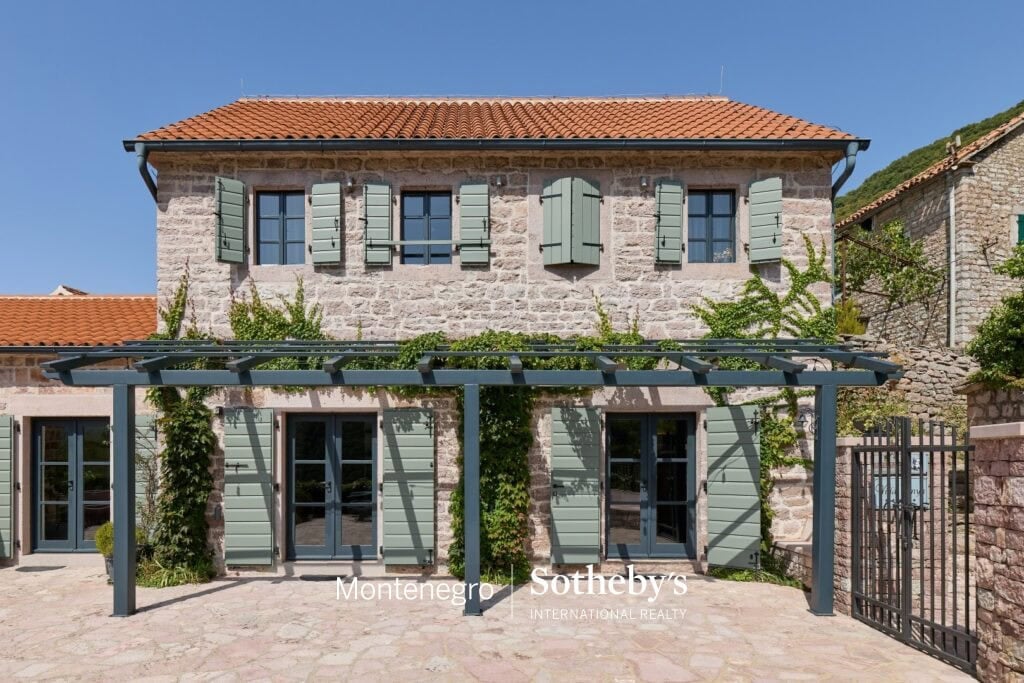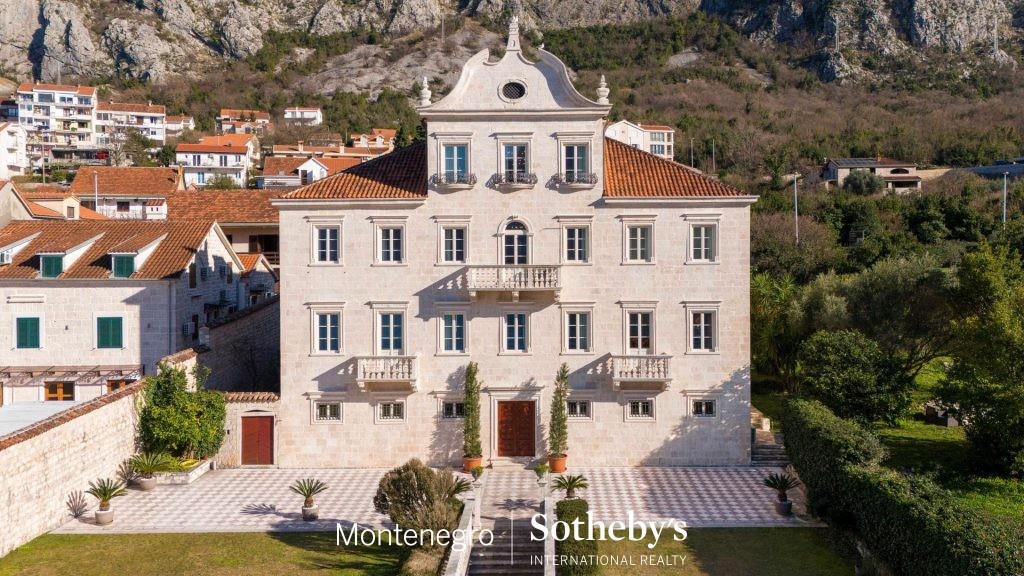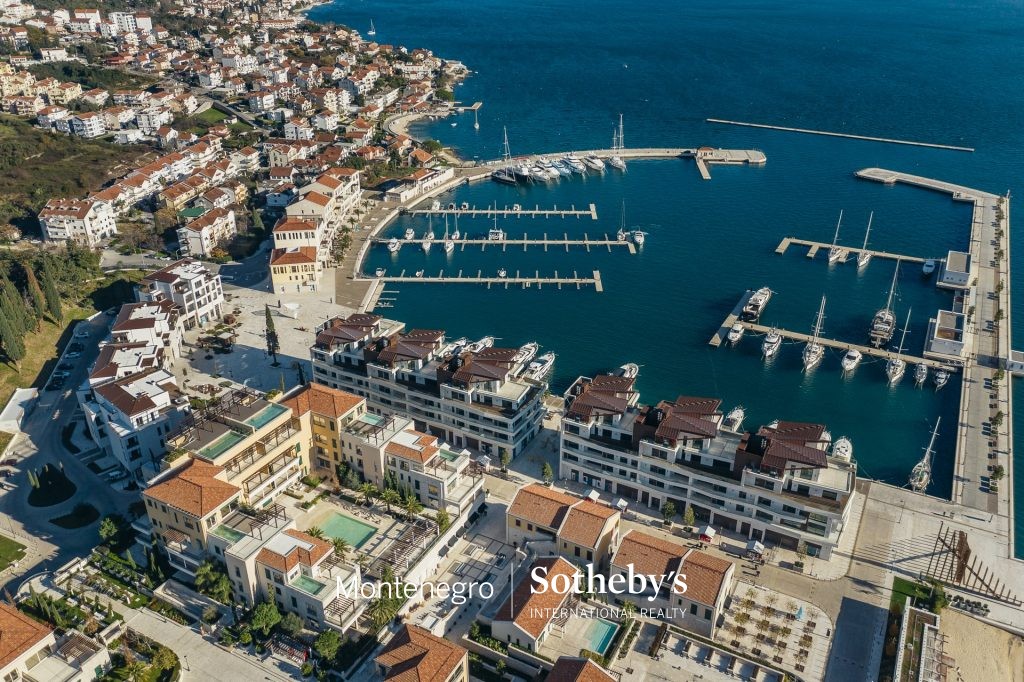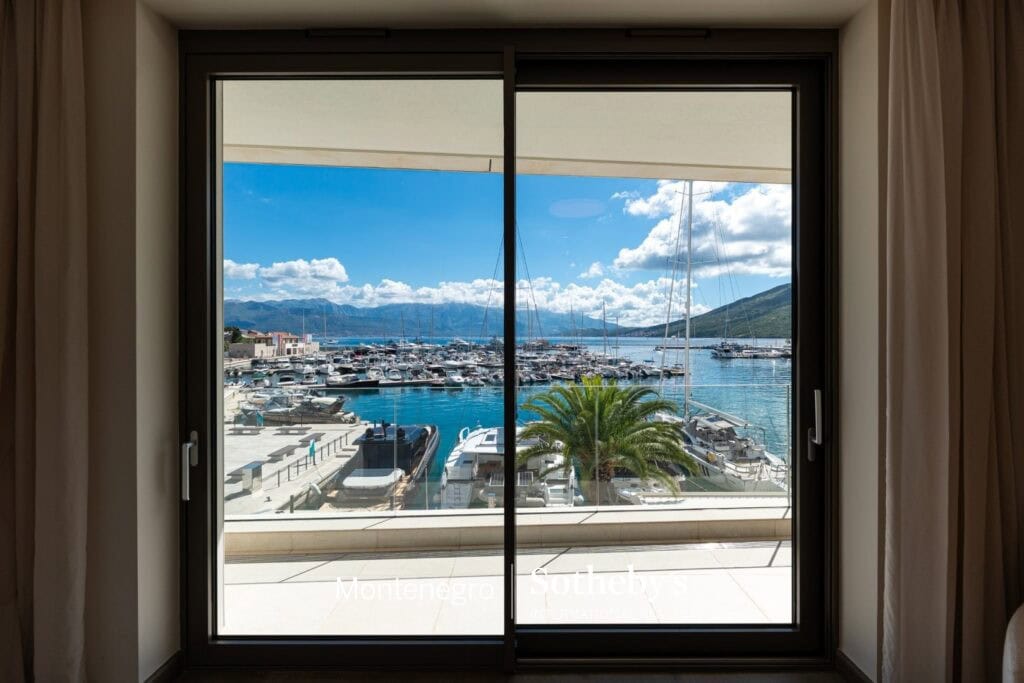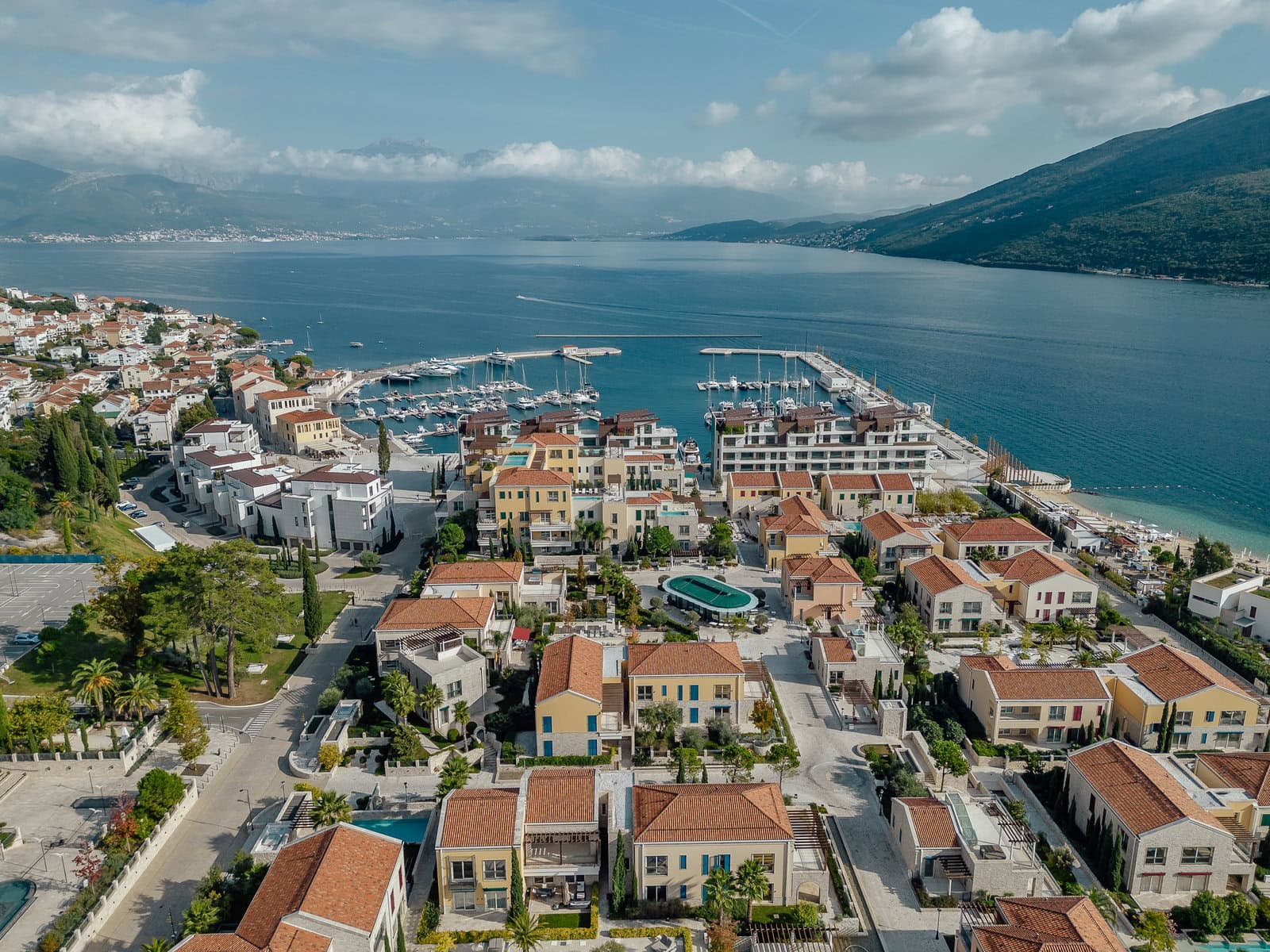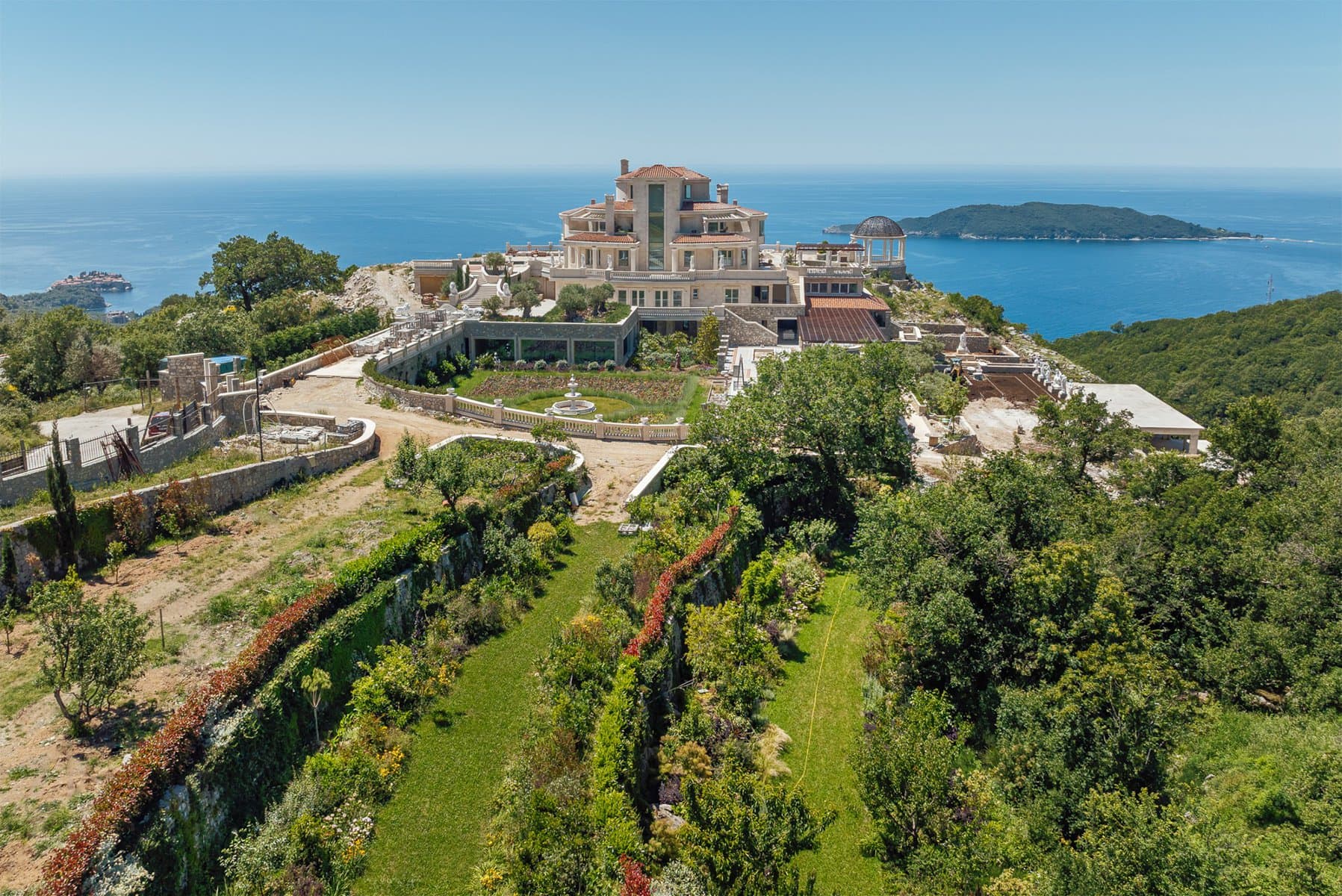Table of Contents
Understanding Montenegro real-estate taxes is an essential part of making an informed property investment along the Adriatic coast. From annual property tax and capital gains tax to the 21% VAT on new developments, the country maintains a transparent and investor-friendly framework. At Sotheby’s International Realty Montenegro, we guide our clients through every detail of ownership costs to ensure clarity, confidence, and lasting value in every transaction.
What is the property tax in Montenegro?
The standard yearly property tax rate in Montenegro ranges from 0.25% to 1% of your property’s assessed market or cadastral value. As of September 2025, most residential properties fall within this bracket, with municipalities setting their specific rate within this range.
Annual Property Tax (“Godišnji porez na nepokretnost”)
- Applies to all property owners (residents and foreigners).
- The rate is set by local municipalities (opštine) and depends on factors like type of property (residential, commercial, tourist hotel), location (coastal, tourist zones vs inland), age / condition, etc.
- Typical rate ranges:
What is the 21% tax in Montenegro?
The 21% tax in Montenegro usually refers to the standard Value-Added Tax (VAT) rate.
Here’s a breakdown of how it works:
What is the 21% VAT?
- It’s the general VAT rate applied to most goods and services in Montenegro.
- VAT is collected at each stage of the supply chain (producer → wholesaler → retailer → consumer). Businesses that are registered for VAT collect “output” VAT on their sales, but can deduct “input” VAT paid on their purchases. The difference is paid to the tax authorities.
Exceptions from the 21% rule / Reduced Rates
Not everything is taxed at 21%. There are reduced rates and zero-percent or exempt categories.
- Reduced 7% rate for certain basic goods & services: e.g. basic foodstuffs (milk, bread, flour), medicines, some educational materials, public transport, etc.
- Zero-rate (0%) for things like exports, international transport services, some goods in free zones etc.
Executive summary (what every real estate buyer should know)
- Montenegro is attractive for buyers because taxation on property is relatively straightforward and generally competitive by European standards: VAT on new builds, a transfer tax on resales, an annual property tax set by municipalities, and a flat 15% rate for capital gains and many forms of income.
- Practical effects: buying a new property from a developer typically includes 21% VAT (built into the price); buying a resale usually triggers the real estate transfer tax (RETT) (historically 3%, now on a progressive scale up to around 6% in some bands introduced recently)
- Annual holding costs are modest: municipal property tax is commonly between roughly 0.1%–1% (many towns 0.25%–1%) of assessed/cadastral value; tourist taxes apply for short-term lets.
Is there a capital gains tax in Montenegro?
Yes, Montenegro does have a capital gains tax. The specifics depend on whether you are an individual or a legal entity, whether the gains are from real estate, securities, etc., and whether any exemptions apply.
What is taxed as a capital gain?
Capital gains in Montenegro may come from: sale of real estate (property/buildings) sale of shares in a company, or other securities or other assets/property rights. Capital gains rates for individuals are 15%, for legal entities (companies), gains are taxed under the standard corporate income tax regime, commonly 9%, 12%, or 15% depending on the level of profits. Some capital gains are not taxable, or are exempt under certain conditions. Examples include primary residence exemption: If the real estate sold is your only and main place of residence, it’s typically exempt, or transfers between close family members (spouse/children) or by inheritance are often exempt.
Key Montenegro real-estate taxes explained (what they are, who pays, typical rates)
1. VAT (value-added tax) — new properties
- When it applies: First transfer of newly constructed buildings (developer sale).
- Rate: General VAT rate is 21%. This is normally included in the developer’s price for new apartments and villas.
2. Real Estate Transfer Tax (RETT) — resales
- When it applies: Purchases of resale properties (i.e., not new-build first transfers subject to VAT).
- Typical rate: Historically 3%, but Montenegro introduced a progressive scale for certain price bands in recent years (effectively 3% rising to higher bands for more valuable sales). Always check the current brackets for a given transaction.
3. Annual property tax (municipal)
- Basis: Market (or cadastral) value; rate set by each municipality.
- Range: Commonly 0.1%–1%, with many municipalities using 0.25%–1%; reductions/exemptions may apply (e.g., primary residence concessions). Payment is usually split into installments
4. Capital gains tax (sale of property)
- Rate: 15% on taxable gains for individuals (companies are subject to corporate rules).
- Allowable deductions: acquisition costs, documented improvements, fees — these reduce the taxable gain. Exemptions commonly apply to primary residences and certain family transfers.
5. Rental income tax & withholding
- Residents: Rental income is taxable under personal income rules — effectively taxed at standard rates (Montenegro’s capped income tax rates are typically modest; many sources reference a 9–15% framework depending on category).
- Non-residents: Montenegro commonly applies a withholding tax on rental income, often around 15% on Montenegro-source rental receipts after allowable deductions; short-term rental (tourism) rules and local tourist levies may also apply.
6. Other levies
- Tourist tax: Applied per guest/day for short-term rentals — municipal levels vary (often small amounts per night).
- Stamp duty/registration fees: Minor administrative fees for notary, cadastral registration and legal checks — budget a few hundred to a few thousand euros depending on transaction complexity.
Living full-time or owning a holiday home guide
Objectives: comfort, legal safety, predictable running costs, and residency possibilities.
Key points/recommendations:
- If you plan to live or use the property frequently, aim for a primary-residence designation where possible — it can bring exemptions (notably for capital gains when sold after minimum residence conditions). Confirm local rules with a lawyer.
- Prefer new or resale? New developer homes include VAT (21%) in the listed price, but avoid the RETT; resale purchases avoid VAT but usually incur RETT. Compare total landed cost (price + VAT vs. transfer tax + notary/fees).
- Annual Montenegro real-estate taxes costs: Expect modest municipal property tax (often <1% of assessed value) plus utilities, condo/HOA fees and a small tourist tax if occasionally rented out. Factor those into your holding cost calculation.
- Residency note: Montenegro has pathways to temporary residence through property ownership (check current program rules and durations). This can affect tax residency if you stay >183 days, and tax residency changes your global tax obligations. Always plan residency with a specialist and check our global citizenship guide.
Montenegro Real Estate Investor Guide (Buy-to-let, Short-term Rental or Capital growth)
Objectives: net yield, tax efficiency, predictable exit taxes.
Key points/recommendations:
- Yield calculation: After purchase, expect to pay municipal property tax, maintenance, insurance, tourist levies (for short lets), platform fees and, importantly, income tax / withholding on rental profits. Model net yield after a ~15% tax on net rental income in many non-resident cases (confirm exact deductions allowed).
- Capital gains: Expect 15% tax on gains, though exemptions may apply (see above). For investors, the typical strategy is to account for this at exit and model returns net of a 15% gain tax (less allowable cost deductions).
- New-build vs resale: Developers’ prices include VAT (21%) — that can be offset by higher rental appeal (brand-new amenities). Resales attract RETT; use a total-cost model when comparing.
- Structuring: Investors sometimes use Montenegro companies or foreign structures depending on holding period, financing and double taxation treaty positions. This is complex — always seek bespoke tax and legal advice before deciding to hold property via an onshore or offshore entity.
Read also: Future Value Of The Luxury Real Estate In Montenegro
Example — quick, illustrative landed cost Montenegro real-estate taxes comparison
Purchase price: €500,000
- New-build (developer): Price typically includes 21% VAT (so a quoted €500k normally already has VAT built in). Check the developer’s invoice: is VAT itemised or included? Total upfront tax component is the VAT embedded in price. Buyer typically pays notary/registration fees on top.
- Resale: Price €500k + RETT (say 3% = €15,000) + notary/cadastral/legal fees (~€1k–€4k) → add these to purchase budget. If RETT brackets apply, the effective RETT could be higher for very high values — verify current bands.
(These are illustrative; always ask the seller/developer and your notary for exact line-item costs.)
Finally, is Montenegro a good place to invest in real estate?
If I had to sum up: Yes, Montenegro is promising for many investors, particularly those with: a moderate to long-term horizon, willingness to navigate legal and regulatory complexity, a focus on desirable locations (coast, good infrastructure), and enough buffer to deal with seasonal variations in income
Read also: Why The Ultra-Wealthy Are Choosing Montenegro For Their Next Home Base
Practical checklist for Sotheby’s clients (before signing)
- Confirm whether the sale is “new” or “resale” (VAT vs RETT applies). Ask for the developer’s VAT invoice or the seller’s confirmation of RETT.
- Request an itemized cost summary: purchase price, taxes (VAT or RETT), notary fees, registration/cadastral fees, outstanding utilities/condo fees.
- Check the municipal property tax rate for that municipality and any local tourist tax rules.
- Clarify residency/tax residency implications if you plan to spend >183 days/year in Montenegro.
- If renting out: confirm short-term rental registration requirements, tourist levies, and how rental income tax will be withheld/declared.
- Get a local lawyer and accountant to review contracts, confirm cadastral title, and model tax outcomes (capital gains scenarios, VAT recovery if relevant).
Explore our Porto Montenegro luxury properties available now.
Recommended Montenegro real-estate taxes advisors & next steps
- Notary & real-estate lawyer: for title searches, drafting purchase contracts and escrow arrangements.
- Local tax advisor/accountant: to model income tax, VAT implications for investors, RETT exposure and residency tests.
- Property manager (for investors): to estimate realistic occupancy and to handle tourist registration and local levies.
Explore our luxury properties in Portonovi now available for sale or rent.
Closing note
Montenegro blends a Mediterranean lifestyle with investor-friendly fiscal simplicity. For owner-occupiers, the numbers usually translate into manageable holding costs; for investors, the predictable 15% capital-gains and clear rental-income rules make modelling returns straightforward—provided you run the numbers with the right local advice. At Sotheby’s Realty, we pair boutique market knowledge (locations, finishing, seasonal demand) with trusted local legal and tax specialists so every purchase is both beautiful and secure.
Selected sources:
- PwC — Montenegro tax summaries (VAT, capital gains, income rules). (PwC Tax Summaries)
- KPMG (Montenegro real-estate tax guide). (KPMG Assets)
- Global Property Guide — Montenegro property taxes overview. (Global Property Guide)
- Investropa / local property guides — recent practical summaries on RETT, VAT, annual property tax, rental rules. (Investropa)
- U.S. State Department / investment climate — background on investment rules. (U.S. Department of State)
